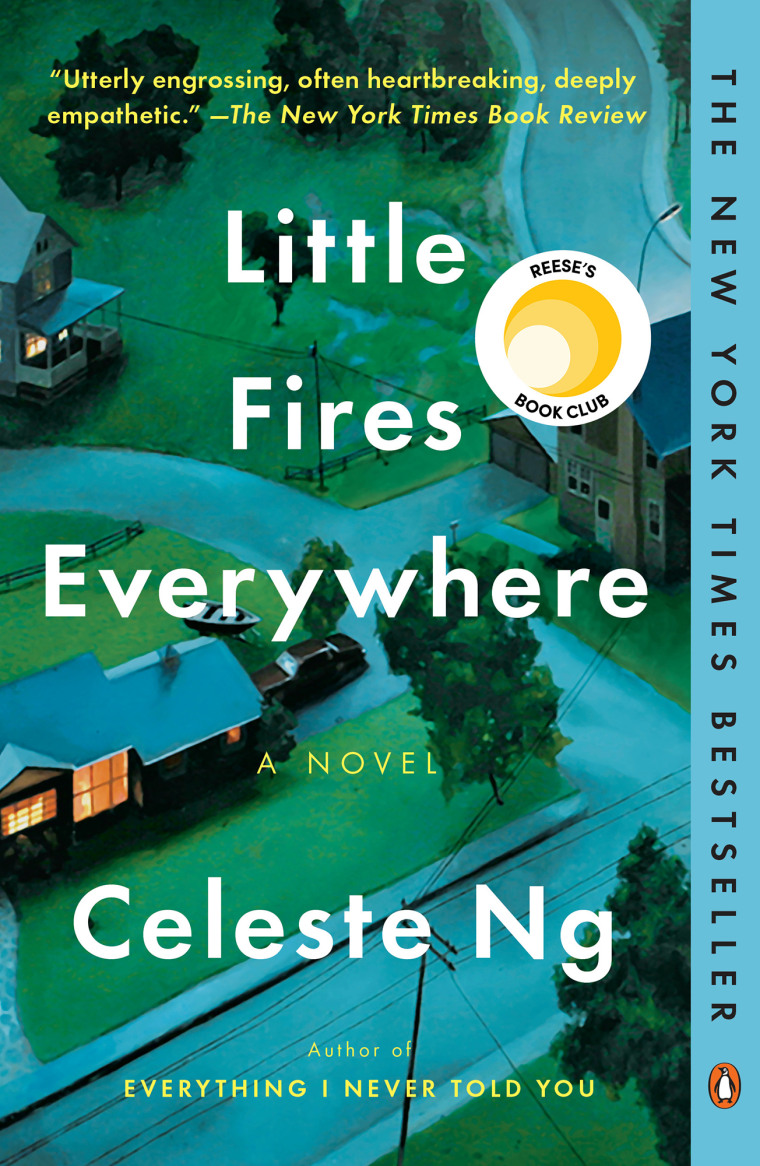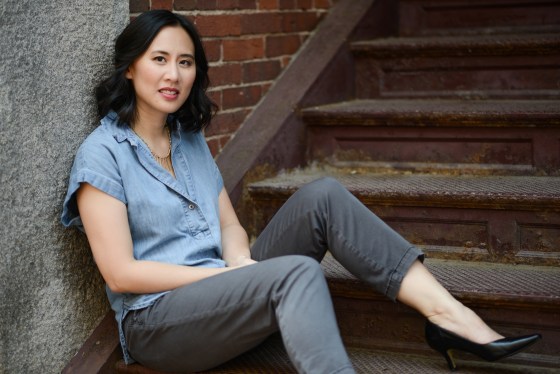Motherhood is a touchy subject — which I learned quickly when I myself became a mother. It’s struck me even more since publishing “Little Fires Everywhere,” a novel that revolves, in part, around the relationships between mothers and children.
I’ve always been drawn to writing about parenting, but the subject resonates particularly deeply because I'm both a mother and a daughter: my mother is still alive, and I have a young son. I find myself looking with a kind of double-vision, both forward and backward at once: How did the mothering I got shape me, and what kind of mother do I want to be as a result?
I find myself looking with a kind of double-vision, both forward and backward at once: How did the mothering I got shape me, and what kind of mother do I want to be as a result?
As is often the case in fiction, there are no one-to-one correspondences between real people and the people on the page — none of the mothers in the book are my mother, and none of the children in the book are my child. But the characters wrestle with a question I ask myself a lot in my own life: How can this little person who came from me be so different, and what on earth do I do with them?
SIGN UP FOR THE THINK WEEKLY NEWSLETTER HERE
It’s hard to know how to mother a child who's very different from you. In “Little Fires Everywhere,” for example, Mrs. Richardson and her daughter Izzy are similar in some ways, but they’re also very, very different — mother is a control freak, daughter is a loose cannon — and the two are always at odds. My own mother is a scientist, in both career and personality, yet I leaned strongly toward the arts, always lost in my imagination, making up stories. I think I must have mystified my parents, as if I were a different species — where did she come from, and how do we parent someone so unlike us?

Navigating these gray areas is one of the more difficult parts of motherhood — especially because the more fiercely you love your child, the easier it is to veer into the obsessive. So often, we conflate protection with control: I love you deeply and want to keep you safe, and if you love me, you’ll do what I say. But this means when our children inevitably rebel, when they find lives different from ours, it can feel like rejection of our love. Many mothers experience a moment where their child says something like “I hate you” or “You're not a good mom.” And it’s painful. It feels like a kind of betrayal: How could someone I love this much ever believe that I hate them?
Paradoxically, this betrayal — and the hurt that comes after — is almost always rooted in our intense desire to protect our children. A friend once told me his mother didn’t want him to go into the arts — not because she didn’t appreciate the arts (she did), but because she knew that was a very hard career, and she couldn’t bear the thought of his life being hard.
None of this means that parents always know best (they don’t, as I’ve learned now that I’m a parent myself) or that children should unquestioningly do what their parents advise. But thinking about these conflicts as a form of love, rather than antagonism, might help us bridge those intergenerational gaps, allowing love to survive alongside the inevitable parent-child disagreements.
Paradoxically, this betrayal — and the hurt that comes after — is almost always rooted in our intense desire to protect our children.
When I was younger, I was often irritated at how eager my parents were for me to go into the sciences — a subject I was good at but had no interest in pursuing. It felt as if they simply wanted to control me, as if they thought they had the right to shape my life however they wanted, like clay. To them, my turning to the arts probably felt like a rejection of their experience and the stability they’d worked so hard to achieve.
But now, as an adult, I see their nudging as a way of trying to protect me, of keeping me on a path that they knew: one they thought was safer because they could warn me about potholes and pitfalls, having walked it themselves. And in hindsight, I suspect they now realize I wasn’t rejecting their love, just striking out to find my own path. I’m deeply grateful that they loved me enough to give me the space to so do — and hope that I’ll be able to extend that same grace, and love, to my son.
As told to THINK editor Meredith Bennett-Smith, edited and condensed for clarity.
